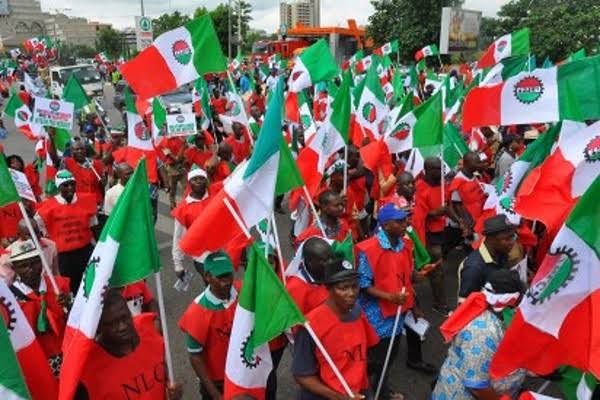Petrol Subsidy Removal: NLC Insits on Peaceful Demonstrations
The Nigeria Labour Congress, NLC, has informed the Solicitor-General of the Federation and the Permanent Secretary of the Ministry of Justice that neither the National Industrial Court nor any other court has issued a temporary, preliminary, or permanent order prohibiting Nigerian workers from taking part in peaceful demonstrations that are organized by the NLC.
This was contained in a letter from Falana chambers to the Permanent Secretary/Solicitor-General, entitle ”Re-NLC in contempt of court,” signed by Sam Ogala Esq.
Additionally, it served as a reminder to the Federal Government, via the Solicitor-General, that there is an ongoing court ruling stating that it is in everyone’s best interest for them to be able to freely exercise their right to peacefully assemble and protest on issues of public concern as long as no wrongdoing occurred.
The letter follows a planned demonstration by organized labour on Wednesday, August 2, against the elimination of the fuel subsidy, the hardships it causes Nigerians, and the government’s incapacity to implement palliatives to lessen the painful effects of the suspension of subsidy payments.
The letter read: “In your reaction to the decision of Nigerian workers to participate in peaceful rallies to protest the worsening economic crisis in the country, you were reported to have accused the leaders of Nigeria Labour Congress of treating the order of the National Industrial Court with contempt.
“Contrary to your unwarranted allegation, the Nigeria Labour Congress does not intend to disobey the ex parte order of the National Industrial Court to the effect that ‘The defendants/Respondents are hereby restrained from embarking on the planned industrial action/or strike of any nature, pending the hearing and determination of the Motion on Notice, dated June 5, 2023.’
“You will agree with us that the National Industrial Court or any other court has not granted an order of interim, interlocutory or perpetual injunction restraining Nigerian workers from participating in peaceful rallies convened by the Nigeria Labour Congress.
“Since the constitutional right of Nigerian workers to protest peacefully cannot by any stretch of imagination be classified as an industrial action or strike of any nature, you ought not to have threatened our client with contempt of court.
“It is pertinent to draw your attention to the case of Inspector-General of Police v All Nigeria Peoples Party (2008) 12 WRN 65 where the court upheld the fundamental right of Nigerians to protest without a police permit. In the leading judgment of the court, Justice Adekeye said as follows:
“The right to demonstrate and the right to protest on matters of public concern are rights which are in the public interest and that which individuals must possess, and which they should exercise without impediment as long as no wrongful act is done.
“If as speculated by law enforcement agents that breach of the peace would occur, our criminal code has made adequate provisions for sanctions against breakdown of law and order so that the requirement of permit as a conditionality to holding meetings and rallies can no longer be justified in a democratic society.
”Finally, freedom of speech and freedom of assembly are part of the democratic rights of every citizen of the republic; our legislature must guard these rights jealously as they are part of the foundation upon which the government itself rests.
“Having advised the Nigeria Labour Congress and its allies to conduct the rallies peacefully, you may wish to advise the Nigeria Police Force to comply with section 83(4) of the Police Establishment Act 2020, which states that ‘where a person or organization notifies the police of his or its intention to hold a public meeting, rally or procession on a public highway or such meetings in a place where the public has access to, the police officer responsible for the area where the meeting rally or procession will take place shall mobilize personnel to provide security cover for the meeting, rally or procession.”




